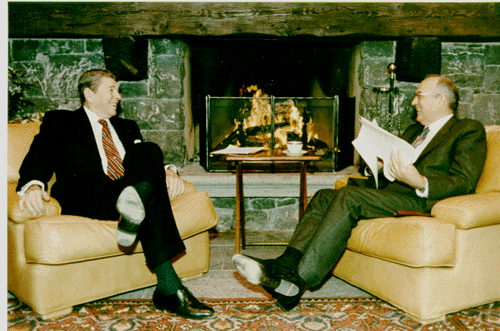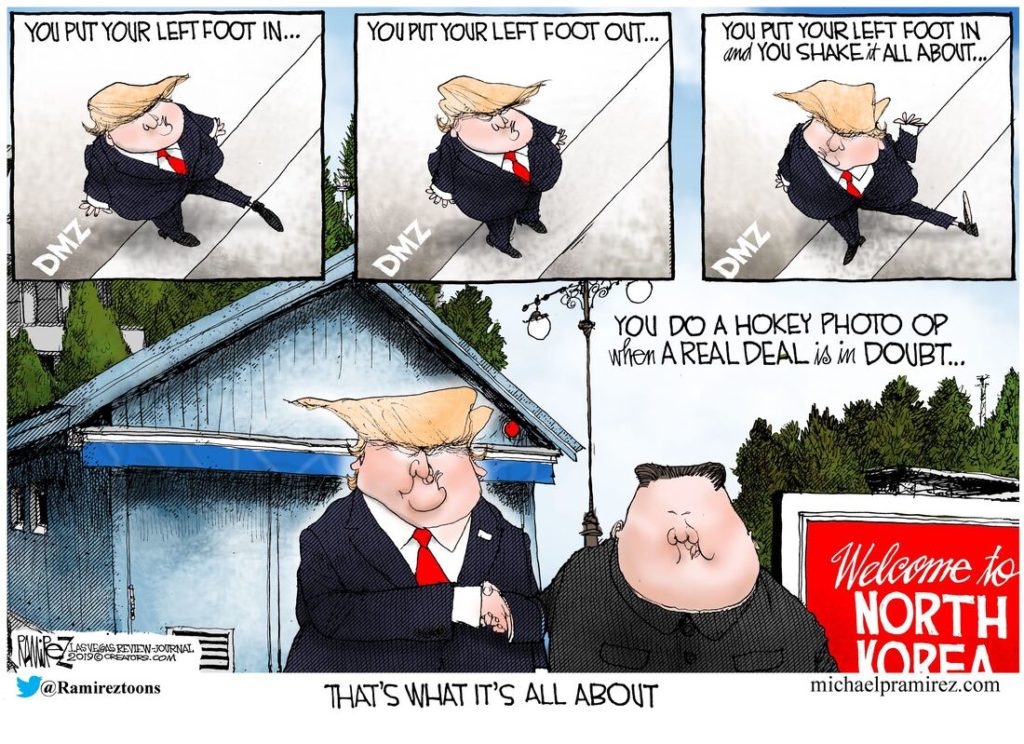I’m all for presidents trying to reach out and talk with leaders of other countries, even when they’re not our friends. After all, that was a real factor in the fall of the Soviet Union. Ronald Reagan tried to communicate with, in order—Brehznev, Andropov, and Chernenko—but they all rebuffed him. Then they died.
He finally found someone he could talk to and arranged a time when they could sit down together.

Reagan developed a genuine relationship with Gorbachev, but it was backed up by Reagan’s policies. He put pressure on the USSR’s economic woes by promoting his Strategic Defense Initiative and supporting Afghan rebels who were trying to drive the USSR’s troops out of their country. Gorbachev knew things had to change.
So, even though Reagan’s personal touch in developing the relationship with Gorbachev was excellent, it wasn’t the only thing that led to the eventual dissolution of that “evil empire.” It took a strong stance against the empire’s policies and actions.
I don’t have a problem with President Trump attempting to reach out to North Korea’s tinpot dictator who is the epitome in today’s world of totalitarianism—executing anyone who disappoints him, persecuting Christians, etc. What does concern me, though, is the over-the-top commentary from Trump about what a wonderful man this tinpot dictator is and what a strong leader he has become. That’s not the Reagan way to bring about change.
Trump’s latest gambit—offering to meet the dictator on his ground—I fear is nothing close to what Reagan did, and I doubt it’s really going to accomplish much. One cartoonist, at least, agrees with me with respect to those doubts:

I’m willing to be proved wrong, but color me skeptical.
